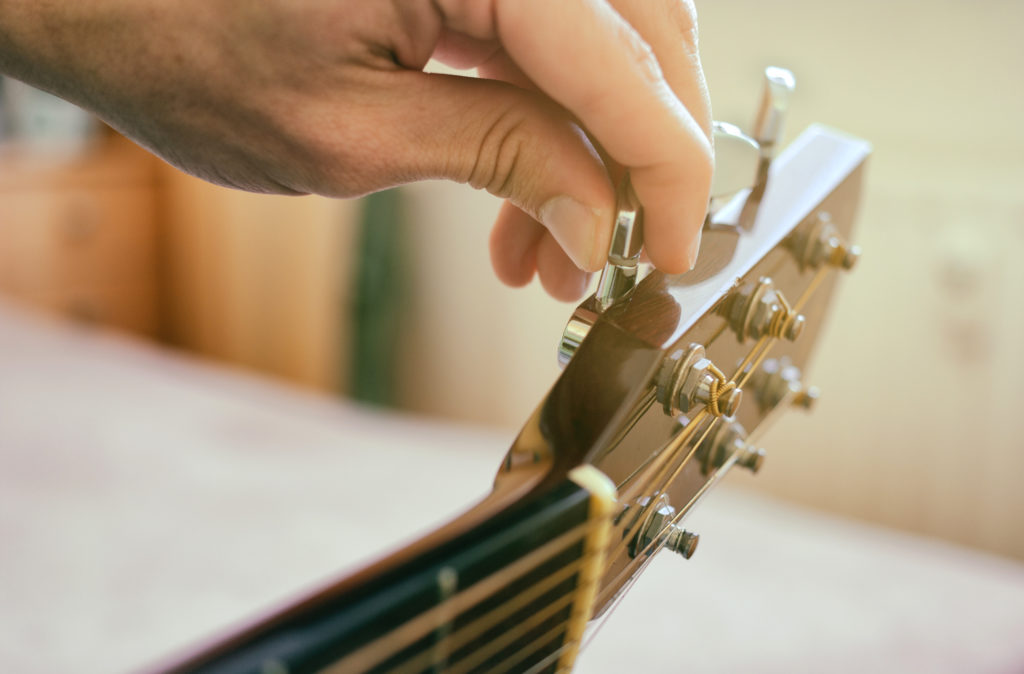5 Guitar Tips That Work
aaamusic | On 30, Jan 2021

Want to learn guitar and do so efficiently – then read these tips below.
1. Get Your Own Guitar Before Anything Else
The first thing to do is to get a guitar to learn how to play.
In most cases, an acoustic guitar would do. However, if you want to master some of the most difficult riffs, you may want to choose an electric guitar to study and practice chords. Consider a Telecaster to start learning to play.
The main point is to choose a guitar that will be easy for you to play. while buying a good instrument may not come cheap, it’s a good idea to have your own guitar to ease your learning process and to make faster progress.
Keep in mind that you should also consider buying a guitar tuner. This will make you more confident in your practice and will help you have your instrument in tune and ready to play before every lesson.
2. Be Patient
Adults are much slower than children in acquiring such new skills, so try to be patient with yourself.
As you practice, you’ll learn new skills and develop new muscles. However, you need to find time to do it every day, in order to improve your performance.
This learning process is slow, particularly in the beginning, so you need to find enough patience to keep you going along until the day when you’ll become a good guitarist. You can expect many months or even years to pass until you’ll be playing at a decent level.
Also, keep in mind that understanding basic music theory isn’t easy. However, if you want to learn to play the guitar the correct way, you’ll have to start by gaining a good grasp of this theory.
Fortunately, adults have an easier time at learning music theory, as they can understand and apply such concepts much better than young children.
3. Have A Practice Schedule In Place And Stick To It
When learning beginner guitar, it is important to find time to practice everyday. Moving on from basic chords to barre chords is something that may take years to solidify. This is why a practice schedule is a key element of learning how to play guitar.
The time within your music lessons shouldn’t count as practice. Lessons are for learning the basics, while practice time is for strengthening your abilities with strumming, progressions, open chords, and many other such things that make for a good guitarist. Muscle memory, for instance, is something you can only acquire through regular practice.
4. Hold Yourself Accountable For Your Progress
Once you’ve developed a practice schedule, make sure you stick to it. There are many distractions that could divert you from your goal, as we all have wife, husbands, kids, or chores to deal with. Make your daily guitar practice a top priority, in order to make faster progress and to strengthen your skills.
Always make sure you stay focused on the task at hand during your guitar practice. Nevertheless, don’t be too hard on yourself, should you see yourself forced to skip one or two practice sessions every once in a while. Just don’t make a habit of skipping your practice. You should aim to practice every day, even if it’s only for 20 or 15 minutes. It is important that you develop a habit, as this is the only way you can see the progress you wish for.
5. Choose Your Songs Wisely
This is something adults are usually able to do better than children. As an adult, you should be able to know what kind of songs suit your actual learning level.
By choosing the right level of difficulty, you’ll find it easier to learn new songs. As you start playing them fluently and without mistake, you can take your skill to the next level and pick songs that have a higher difficulty level. Id you start with advanced songs, you’ll probably fail at learning them properly, so you’ll risk to love your motivation to stick to your practice.
If you aren’t sure what songs are good for you to learn, you should probably ask your guitar teacher for advice. A good teacher will know how to assess your skills and what songs to recommend, in order to maximize your chances to play them well within a relatively short time.
Always try to use your guitar instructor to the full. He or she should be your first and foremost resource, your source of information and of constructive feedback. After all, the teacher is the most qualified individual to help you make progress, one step at a time, until you’ll be able to play complex songs like a pro.

